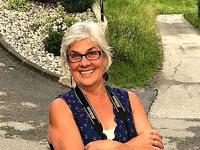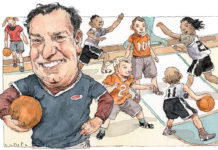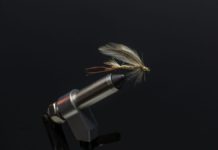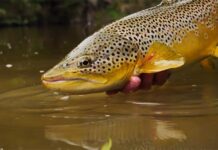Sung-Hee Chung, 58, arrived in the United States as a young girl, having relocated from South Korea with her family. One thing she remembers vividly are the beautiful glossy magazines on the tables at the doctor’s office. In those early days, she learned there were magazines about skiing, yachting and good housekeeping.
But it was the outdoor images that most drew her attention.
“I was always drawn to the magazines with the beautiful blue sky, meeting the bright white snow,” she recalls. In fact, she went on to find a love for cross-country skiing, and also sculling. But another thing she recalls about those magazines was a complete lack of representation; there was no diversity of gender, skin color or ethnicity among the people shown in those magazines.
“There, in between (the blue sky and white snow),” she says, “was a white man on skis.” As a young woman, says Chung, she always wondered why there were no women or people of color in those glossy images.
Representation, says Chung, is so important, especially when it comes to the outdoors. To help achieve this, she has created Powered Magazine, which offers access to activities for Black, Indigenous, and people of color (BIPOC), along with a magazine in which to tell their stories of experiencing and enjoying the outdoors.
Powered Magazine recently partnered with Vermont Outdoor Business Alliance (VOBA) on a media project to magnify and amplify opportunities in the outdoors and the workplace for BIPOC Vermonters.
This summer and fall, the organizations collaborated with the state of Vermont’s departments of Tourism and Marketing, and Forests, Parks and Recreation, as well as several outdoor brands, and other organizations on outings and multimedia storytelling that focused on BIPOC communities in outdoor recreation, and also shined a spotlight on outdoor-sector career opportunities in Vermont.
Outdoor facility space, gear and accessories, and instruction were provided for BIPOC groups enjoying e-biking, hiking, birding, rock climbing, biking on the Island Line Rail Trail in Burlington and fly fishing, and sculling on the West River in Brattleboro. Brands and organizations in the collaboration included Turtle Fur, Darn Tough Vermont, Petra Cliffs Climbing Center and Mountaineering School, Local Motion, Audubon Vermont, Orvis, Concept 2, Row Brattleboro Outing Club, and local guide Robert Johnson III.
“Our shared goal,” says Kelly Ault, executive director of VOBA, “is to advance a vision for equitable access for all in outdoor spaces and outdoor work places. Through excursions and instruction, interviews with outdoor professionals, and storytelling that connects people, places, products and professions, we hope to show what is possible if we work together.”
On their way to one of the climbing outings, Chung rode in the car with Andrea Charest, one of the owners of Petra Cliffs, who was providing leadership and instruction for the rock climbing event. Chung took the opportunity to ask Charest, “Did you ever imagine working in something you enjoy, that is your passion?” Chung also reflected on that conversation with Charest: “That connection is largely missing for our BIPOC community,” says Chung. “Pursuing that passion for BIPOC people is more difficult.”
Some might ask, what is so hard about it? Why not just go outside? Chung points out that one reason is generational trauma, which can be a significant factor. For example, a fear of recreating in the forest is common among Black people, because of the long history of harm and racially-motivated violence that often happened in remote places. There can be fear of the water, also, whether it is related to transportation of slaves or cultural beliefs, such as water being a “stealer of souls.” These fears are the result of a long history of racism and oppression.
There are other barriers, as well, including access to details like infrastructure, such as trails, equipment or transportation, plus funding for gear or education, and access to the skills themselves. These barriers feed in to a longstanding perception that BIPOC don’t belong, says Chung.
The perception piece is important, says Chung. She gives the example of white people learning to ski: They will walk up and rent their gear and buy their tickets, and on the slopes, they might fall down, or laugh, or be loud, and that’s acceptable. “That’s viewed differently when it’s BIPOC,” says Chung, and that exacerbates a feeling of not belonging.
Education is a very important part of access to the outdoors for BIPOC, too. In many cases, for BIPOC, she says, “You’re going to learn a new activity in a place you’re not familiar with.”
But, she points out, “it’s fair to say many people in Vermont have at least somebody they know who they identify with, who practices one of the activities Vermont has to offer.”
Even simply having the opportunity to be introduced to a new outdoor activity by someone who is familiar can be a challenge for BIPOC.
“That’s access,” says Chung of this barrier. “And we’re not even diving into the economics of it. Also, there is the economics of time, how much time we have to spend working or maintaining a household,” because, she points out, because of income disparities for many BIPOC, they work longer hours.
Powered Magazine started as a way to provide a platform for members who are in the outdoors to share their joy, says Chung, for BIPOC in the outdoors and those who aren’t aware of what the outdoors is about and how to connect with it.
Powered Magazine offers free courses for BIPOC in cross-country skiing, swimming, hiking, rock climbing and sculling, and through support from grants, provides education, equipment, access to a facility and instruction. For example, a course called Weekly Inclusive Water Time has participants start with walking into the water and seeing how water feels around their bodies, because often, says Chung, there are not good memories of water. That then leads to floating, which in turn leads to taking some strokes. Grant money provides swimming gear such as swim caps to protect braids and dreadlocks, goggles and burkini swimwear.
“All they have to do,” says Chung, “is just show up with an interest, hopefully find joy and then at the end, we have a community gathering to share our joy.”
These opportunities really address the health portion of access to outdoor activity, especially mental health, says Chung. As for physical health, “if something about a physical activity strikes that pilot light inside of you and that grows, it’s a start of transforming one’s lifestyle.”
She recalls two recent stories of lives being transformed: A man who had been attending the weekly swim sessions was feeling more confident in the water, and wanted to practice more often. With grant funds, Powered Magazine purchased a membership to the Burlington YMCA, where he can keep practicing swimming on his own schedule, and also explore the rest of the facility.
Similarly, a woman who attended a cross-country skiing course went on to purchase her own skis, and then called Chung for more instruction. They began skiing together almost every Saturday last winter, and even completed a 25-kilometer ski.
“Her skills have improved so much,” says Chung, and they plan to keep going this winter.
At the moment, Powered Magazine is seeking funding to produce a quarterly magazine and build a website. They are in the process of building a safe website and they are being very intentional about how to use social media responsibly; while they do have an Instagram account, posting has been paused until that process is complete. In the meantime, as Powered Magazine continues to offer these opportunities and see lives transformed, they are collecting images and stories to share with community and school groups, and in the magazine that is in development.
“The goal,” says Chung, “is to have a glossy magazine to share those.”
Credit: Source link































